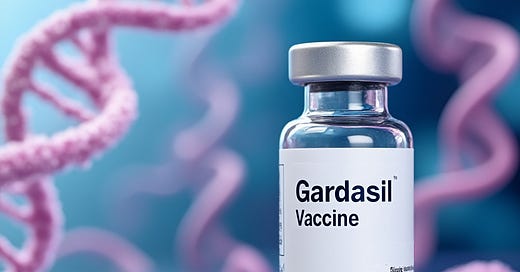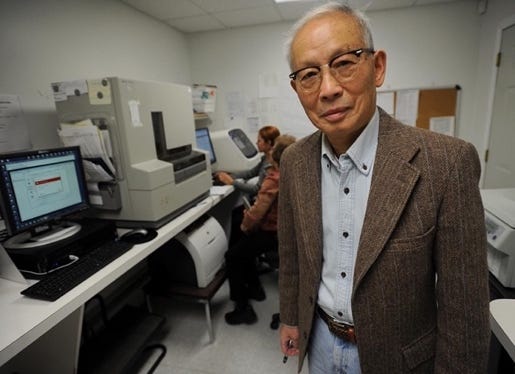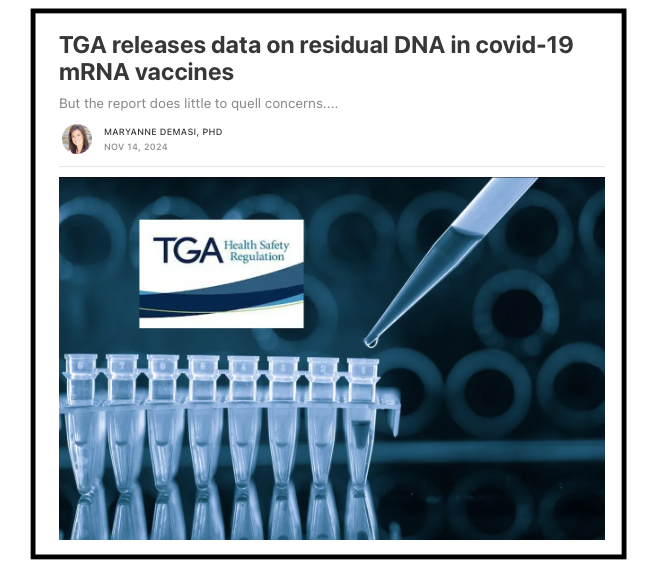TGA ignored DNA fragments in Gardasil HPV vaccine
International drug regulators said there were DNA fragments in the Gardasil vaccine, but Australia’s TGA sat on its hands and did nothing.
When Sin Hang Lee, a pathologist and 30-year veteran in DNA analysis, alerted international drug regulators about the presence of DNA fragments in the Gardasil HPV vaccine, his concerns were summarily dismissed.
Both the US and European drug regulators admitted there were DNA fragments in the vaccine but said it presented “no risk to vaccine recipients.”
A freedom of information (FOI) request was sent to Australia’s Therapeutic Goods Administration (TGA) asking for any analysis on the levels of DNA fragments in the Gardasil vaccine, following Dr Lee’s discovery.
The FOI was returned stating, “Despite a thorough and complete search, the documents you have requested do not exist… accordingly, no documents are available to release.”
That means, even after international drug regulators informed the public about the presence of HPV DNA fragments in the Gardasil vaccine, the TGA did nothing to address the issue or conduct its own analysis.
Concerns over safety
As previously reported, DNA fragments in the Gardasil vaccine are bound tightly to its aluminium adjuvant, Amorphous Aluminium Hydroxyphosphate Sulfate, (AAHS).
Dr Ah Kahn Syed (a pseudonym) argued that AAHS can act as a “transfection agent” and facilitate the entry of HPV DNA fragments into cells where they can wreak havoc on cellular processes.
It was known as early as 2003, that when DNA fragments bind to aluminium adjuvants, they undergo conformational change and can be introduced into the human cell via a process called “gene transfection.”
That means all recombinant vaccines (which have residual DNA fragments), when mixed with “transfection agents” such as aluminium adjuvants, polysorbates and lipid nanoparticles, have the potential for gene transfection.
NOTE: Transfection is the process of artificially introducing nucleic acids (DNA or RNA) into cells, utilising means other than viral infection.
Authorities have dismissed concerns over HPV DNA fragments in Gardasil, saying that “extremely small quantities” in the vaccine are harmless.
But, as the above FOI demonstrates, the TGA never investigated the issue, nor have other drug regulators produced any data on the clinical safety of HPV DNA fragments in Gardasil.
Currently, the TGA’s pharmacovigilance database shows 5710 reports of adverse events associated with Gardasil since its approval, including 4 deaths.
There are numerous case reports in the medical literature, and major litigation underway, alleging the Gardasil vaccine has caused autoimmune or neurological diseases such as postural orthostatic tachycardia syndrome (POTS) and premature ovarian insufficiency, the latter of which can result in infertility.
Other reported harms include Guillain-Barré syndrome, fibromyalgia, chronic fatigue syndrome, orthostatic intolerance, dysautonomia, seizures, and even death.
When Gardasil was originally approved, it was a three-dose regimen. Then, some public health authorities reduced it to two doses. In 2023, the Australian government reduced it again to a single dose for routine immunisation of young people.
The government stated the change was based on evidence that one dose gave comparable protection against HPV infection compared to two doses. It is not clear if the growing number of reported adverse events with Gardasil played a role in reducing the doses.
But what is clear, is that the TGA failed to investigate concerns about HPV DNA in the Gardasil vaccine and abrogated its duty to protect the public.
This comes soon after the TGA dismissed concerns about excessive levels of DNA fragments in the Pfizer and Moderna’s covid-19 vaccines as “misinformation.”
The agency said it tested 28 batches of the covid-19 vaccines which “complied with the World Health Organization recommended limit of up to 10 ng per dose,” despite using methods that were likely to underestimate levels by 100 times.
Further reading:





